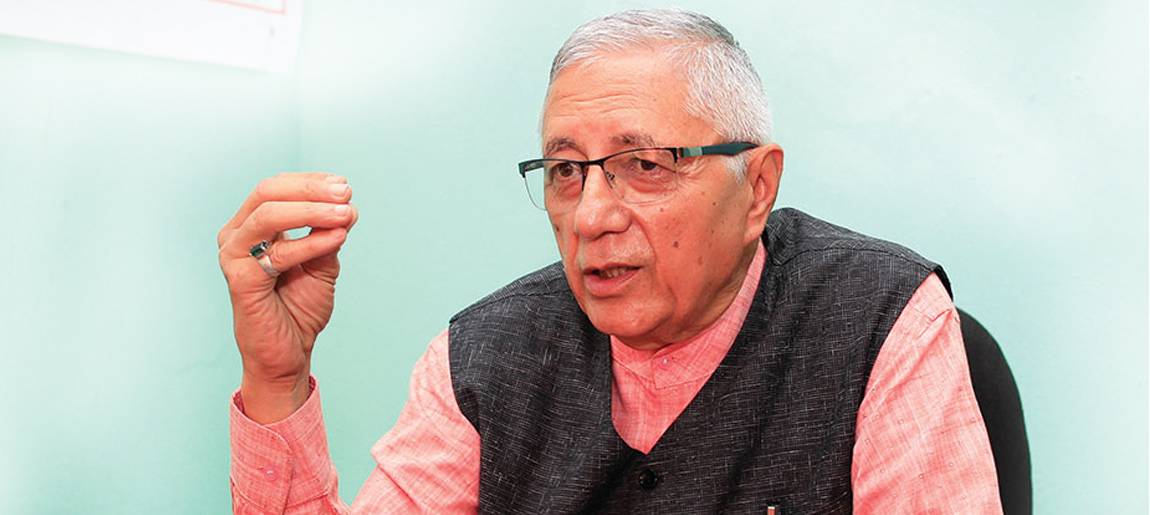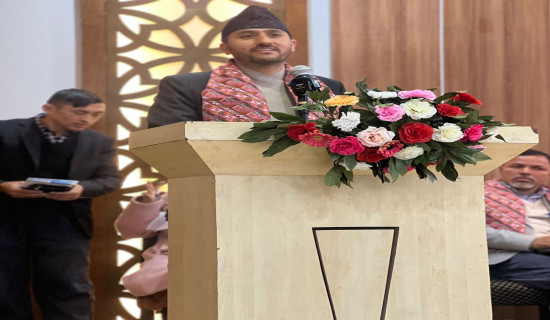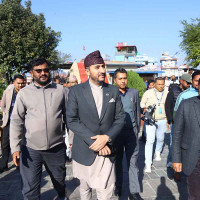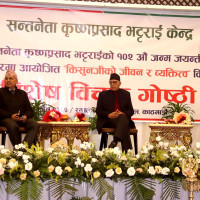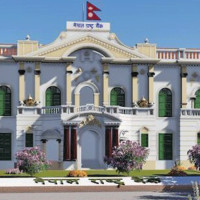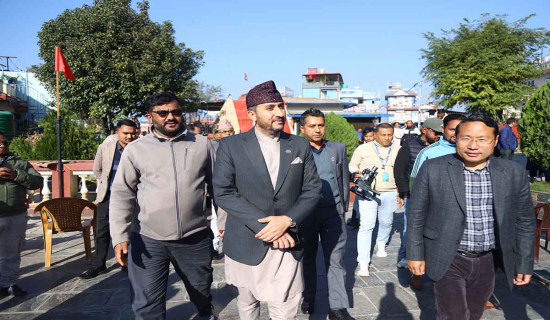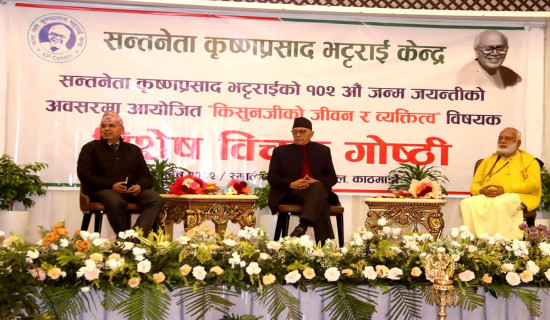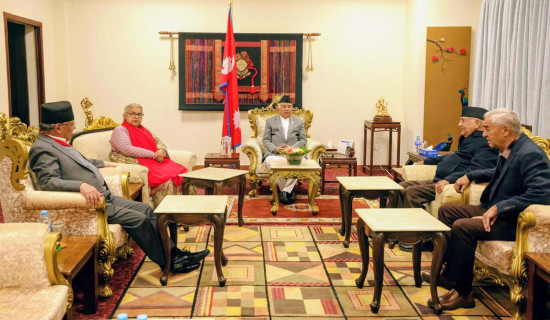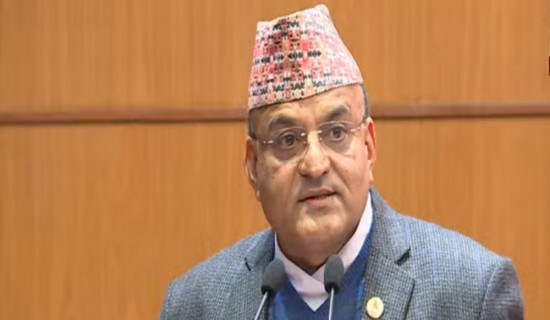- Wednesday, 24 December 2025
NC leader Dr Shekhar Koirala delivers speech in British Parliament
Kathmandu, Jan 14: Nepali Congress leader Dr Shekhar Koirala has said the shared experiences of history and common aspirations of our peoples in changing times, Nepal-Britain relations remain as relevant and strong today as they have been historically. Democracy, human rights, pluralism and people-centered good governance are common aspirations of our peoples,
commitment of our parties and governments, Dr Koirala said in his speech delivered at the British Parliament (Westminster) on 'Nepal-Britain Relations and Future Aspirations' on Monday.
Dr Koirala said that common
interests have brought Nepal and Britain together and we regard our excellent
and enduring friendship with Britain as being in our permanent national
interest.
"We continue to uphold and
stand by shared and common interests. This historic friendship is marked by
strong bilateral relations nurtured by growing people-to-people
interactions."
Dr Koirala stated that the
distinguished service of the Gurkhas in the British Army has been central to
our bicentennial diplomatic journey. "Irrespective of chances over 200
years, our relations have stood the test of time, with people to people
connections at the core.
Dr Koirala viewed that service of
the Gurkhas is central to our long-standing relations and added that a
bilateral committee is looking at some of their grievances. He said, "In
the spirit of our deep friendship, and the professional dedication and personal
sacrifices of the ex-Gurkhas for the British honour. I urge the committee to
resolve the just demands of the Gurkhs without delay."
Leader Dr Koirala stated that the
1924 Treaty of Peace and Friendship with Britain's formal recognition to Nepali
sovereignty ushered in a new era, enabling Nepal to diversify diplomatic
relations globally.
"We are deeply grateful to the
UK for its early recognition of Nepal as an independent country," he
added.
He also thanked the British side
for its unwavering support during various crises adding that such steps have
further cemented Britain's role as a true friend.
Dr Koirala also shared about the
passing of the TRC Bill from Nepal's Federal Parliament stating that the step
will enable Nepal to end the political transition and fulfill the promise of a
sovereign, democratic, peaceful and prosperous Nepal, through improved
governance.
"We firmly believe that
democracy is indispensable for development. We are strengthening grassroots
democratic institutions through our federal structure to align with people's
aspirations, and take the governance closer to the people."
Likewise, Dr Koirala said that
maintaining relationship with Nepal's two increasingly powerful neighbors is
not merely a geopolitical necessity but a cornerstone of our carefully crafted
foreign policy. "As Nepal's oldest diplomatic friend and a major Western
power, Britain's understanding of Nepal's stance on non-alignment in both
regional and global contexts will be vital."
He also said that democracy today
faces the challenges of the rise of populist politics, extreme nationalism,
communalism, and economic nationalism that he believed undermine the spirit of
multilateralism.
In his address, Koirala said that
the global political, economic and strategic focus is shifting to the
Indo-Pacific and South Asia as an epicenter. (RSS)

